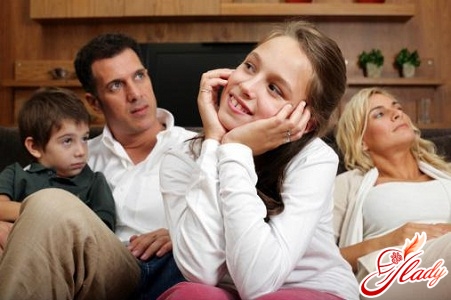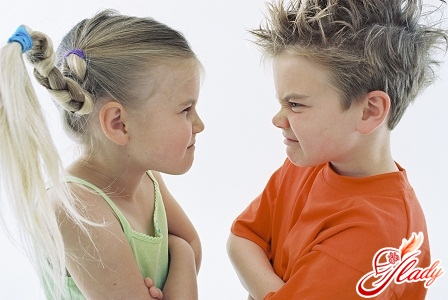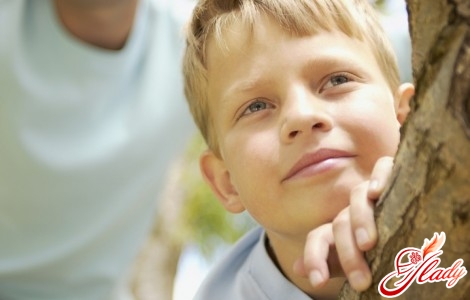 Parents' rights, children's rights.These words are heard so often that most people simply do not pay any attention to them. And only a few know what these mysterious rights and responsibilities of children and parents are. However, very often this knowledge is lacking exactly when it is most needed. All rights and responsibilities of parents and children are usually divided into two main groups: property and personal. Property rights, in turn, are divided into alimony rights and responsibilities and property. At first glance, such a structure may seem complicated, but in fact it is not. By the time you finish reading this article, you will be practically an expert in this field. Not long ago, the new Family Code of the Russian Federation saw the light. It has a significant number of amendments and changes that greatly facilitate the regulation of personal relations between children and parents. In addition, the rights of the child provide conditions for a humane and correct upbringing process of the child. If, of course, you follow these rules.
Parents' rights, children's rights.These words are heard so often that most people simply do not pay any attention to them. And only a few know what these mysterious rights and responsibilities of children and parents are. However, very often this knowledge is lacking exactly when it is most needed. All rights and responsibilities of parents and children are usually divided into two main groups: property and personal. Property rights, in turn, are divided into alimony rights and responsibilities and property. At first glance, such a structure may seem complicated, but in fact it is not. By the time you finish reading this article, you will be practically an expert in this field. Not long ago, the new Family Code of the Russian Federation saw the light. It has a significant number of amendments and changes that greatly facilitate the regulation of personal relations between children and parents. In addition, the rights of the child provide conditions for a humane and correct upbringing process of the child. If, of course, you follow these rules.
Parental rights in relation to the child
Parents have a number of rightsfeatures. And the most important of them is urgency. Parental rights have a strictly defined term, which in our country is eighteen years. That is, parental rights are valid only until the child reaches the age of majority. In addition, parental rights can be terminated early also if a minor child marries or acquires full legal capacity before reaching the age of majority. All such cases are strictly stipulated in the legislation. Parental rights very harmoniously combine the interests of both parents and children. After all, as you yourself understand, parental rights simply cannot contradict the interests and well-being of children. After all, the most important task of any mother and father is, first of all, their well-being, and caring for them is always paramount. Careless parents are severely punished, as cruel, neglectful and negligent attitude, degrading attitude and exploitation of children are strictly prohibited by the current legislation of the Russian Federation, and the punishment consists not only in deprivation of parental rights, but also in criminal liability. All parental rights are granted to both parents equally - both the mother and the father. Moreover, it does not matter at all whether the parents live together or separately. Until one of the parents is deprived of parental rights by court order, he has every right to participate in the upbringing process of the child. And all issues related to the education, treatment and upbringing of the child must be previously agreed upon by both parents. In the same case, if any disagreements arise on this account that cannot be resolved through negotiations, one of the parents or both have every right to seek help in making a decision from the local guardianship and trusteeship authorities or the court.
- Parents have the right to establish paternity
In the event that a child was born toparents who are not officially married, it is possible to establish paternity. The legislation of the Russian Federation provides for two ways to establish paternity: voluntary and through the courts. If the father and mother agree to acknowledge the fact of paternity, they must apply to the local civil registry office with a joint application. Based on this application, the passport details of the father will be entered in the "father" column of the child's birth certificate. And together with the child's birth certificate, you will be given a certificate of paternity. If one of the parents does not want to establish paternity by voluntary agreement, the other parent can file a claim in court about the child's origin from a specific person. Contact the guardianship and trusteeship authorities - they will definitely help you write the application correctly, and may well act as your legal representative in court. There is an opinion that in order to establish paternity, a genetic examination is mandatory, the consent to which the other party does not always give. However, in reality, the court takes into account any compelling evidence that can confirm the child's origin from a particular person.
- The right to give the child a name, surnames and patronymic
All parents have the right to choose for themselvesfor their child, the child's first name, last name and patronymic, in accordance with the norms of the Family Code of the Russian Federation. Parents have the right to give the child absolutely any name, and the Civil Registry Office will be obliged to register it, the child's last name is given either the mother's or the father's, if they are different. In the same case, if the parents fail to reach unanimity on this issue, the guardianship and trusteeship authorities can help resolve the conflict situation. They will try to find a compromise that will suit both parties. And finally, the patronymic in the case of established paternity is given on the basis of the father's name, and in the case where the mother is single, the patronymic is recorded from the mother's words.
- The right to change the child's name and surname
In the event that for any reasonparents decide to change the name of their child under the age of sixteen, they must submit a joint application to the civil registry office and the guardianship and trusteeship authorities with a request for permission to change the name. The same applies to situations in which parents with different surnames want to change the child's existing surname to the surname of the other parent. By the way, if the child is already ten years old, then, in addition to the permission of the guardianship and trusteeship authorities, they will need the consent of the child himself. Most often, the guardianship and trusteeship authorities decide to allow a change of surname and name for the child:
However, remember that there is no single algorithmsimply does not exist. And the decision to satisfy or reject a claim to change a child's name or surname is made by the guardianship authorities and the court on a strictly individual basis, taking into account the interests of the child first and foremost, and only then the parents. Therefore, if you decide to change your child's name or surname, think carefully about your decision. First of all, think about the child - does he or she want this. And when changing the surname, you should not rush too much - what if you make peace with your ex-husband? Or get married again? Will you change the baby's surname again? And if you get divorced again? You should not treat the child as if he or she were some kind of toy.
- Right to protect the interests of your child
All parents, except those deprived of their rightsparental rights, have a full, unlimited right to protect the interests of their child by any legal means. It is the parents who are the official legal representatives of the interests of their children. Parents protect the rights and interests of their child in any relationship, both with legal entities and individuals. To do this, parents do not need any special permissions or powers - they are given by the state at the time of the birth of the baby. There are only a few cases in which parents cannot be representatives of the interests of their children. This applies to those cases where the parents are deprived of parental rights by court order, or in the event that the interests of the parents and the child do not coincide. In such cases, the legal representative of the child's interests will be appointed by the guardianship and trusteeship authorities. Probably, there is no need to dwell on such cases in detail, since it is interesting for normal parents, which our readers are, to always take into account the interests and well-being of their child first and foremost.
- The right to determine the place of residence of a child
It is up to the parents to decide what isbest for their child. This also applies to where the child will live. If any of the relatives - grandparents, uncles or aunts - suddenly decide that the child will be better off with them, the parents have every right to demand the return of the child. Moreover, this action on the part of relatives is a criminal offense. However, one should also not forget that the child's relatives have the right to file a lawsuit to recognize you as incapable of adequately raising your child and incapable of creating appropriate conditions for him. And if they manage to convince the court of this, it may take their side.
- The right to self-education
The right to independently choose forms and methodsThe right to educate also belongs to parents. However, it is necessary to remember that education should in no way harm the moral and physical health of the child, it is unacceptable to humiliate the dignity of the child and violate his rights and interests. The right to independently educate a child is quite interesting, since it is mandatory, because it is the parents who are obliged to take care of the child's mental health, his upbringing, spiritual development, education.
- The right to determine the method and place of education of a child
Parents have every right to do it themselvesmake all decisions regarding the child's education and the form in which it will be received. The child can study at the educational institution chosen by the parents or be homeschooled - the main thing is that this does not contradict his interests. However, remember that after the child reaches the age of ten, you will have to listen to his opinion regarding the issue of his education.
Rights of minor children of a personal nature
Every child born automatically acquires a number of rights that are due to him under Russian law:
- Living in a family
Every child has the right to live andfamily upbringing, as much as possible. In the event that parents abandon their child, he or she has the right to state care and the right to be adopted into a foster family. After all, no matter how good it is in the best children's institution, it is not able to replace the affection, care and love of family and friends. The same is true in relation to those cases when the child's residence with parents threatens his or her well-being, health and even life. In such cases, the child is also forcibly removed from the family and placed in a specialized children's institution until a court decision. If the parents change their behavior and convince the court of their reliability, the child will be returned to the family, under strict and careful control of the guardianship and trusteeship authorities. If the court finds that the parents still pose a danger to the child, they will be deprived of parental rights. The child may end up under the guardianship of one of the reliable relatives, or will receive the right to be adopted into a foster family.
- The right to communicate with relatives
The child has the right to unimpeded communicationwith their close relatives: grandparents, sisters and brothers. Moreover, if the parents prevent this communication, any of the relatives has the full right to go to court to resolve this conflict situation through the courts. The court may oblige the parents to allow the child to meet with relatives. However, it goes without saying that such meetings are possible only if communication with relatives does not threaten the child's health and peace of mind. The child retains the right to communicate with relatives even in extreme situations, such as arrest, treatment, etc. Whatever happens, until your child turns 18, he has the right to unhindered communication with his legal representatives - most often his parents. The only thing that can limit such communication is the internal regulations of the institution in which the child is currently located.
- Right to represent his interests
The peculiarities of our modern society are such thatthat often, in order for the child's rights not to be violated, it is necessary to resort to the help of the court. And any child has the full right to a legal representative in court. Such a legal representative can be one of the parents or the child's guardian. In the same case, if the child is under the guardianship of the state, or his parents for some valid reasons cannot act as legal representatives of the child's interests, he will be provided by the guardianship and trusteeship authorities. The same is true in relation to other situations in which the child needs a legal representative. For example, in no case is it permissible to conduct any interrogations of the child, or question him as a witness without the presence of a legal representative - this directly violates his rights.
- The right to defend one's interests
The child has every right to protect his owninterests and legal rights. The guardianship and trusteeship authorities, the prosecutor's office, and the court are on guard for the interests of the child. However, the new law on the protection of children's rights provides the opportunity for any child to independently seek help from the guardianship and trusteeship authorities, and after he or she turns 14 - from the court.
- Right to own opinion
The child has every right to express his/herown opinion. This also applies to the solution of any family issues. Of course, the final word will be yours, but it is still worth listening to the child. And it is not even about the rights of the child - by respecting the opinion of the child, you respect him. The child who feels that his opinion is respected and taken into account, begins to take his words and actions much more seriously and thoughtfully. And the respect of parents has the most favorable effect on the child's self-esteem. In addition, the child's opinion can be heard during administrative or judicial proceedings, of course, in the presence of a legal representative. Moreover, the opinion of a child who has reached the age of ten is taken into account in court. And what's more, there are a number of decisions that are not made without the consent of the child. Such procedures include: changing the child's name, surname, reinstatement of parental rights or adoption, determining the child's place of residence, etc.
- Right to receive medical care
All children born in the Russian Federation,have the right to receive free medical care, within the framework of compulsory medical insurance. Every newborn child must receive a compulsory medical insurance policy. The parents or other legal representative of the child must contact the relevant authorities to receive it. However, emergency medical care is provided to children even if for some reason they do not have a compulsory medical insurance policy. If a doctor refuses to accept a sick child without a medical policy, you must immediately contact the head physician of the medical institution.
- Right to receive education
Every child in the Russian Federation has the rightfor free education. A child has the right to attend a preschool general education institution, or, in other words, a kindergarten, and subsequently a school. And if attending a kindergarten is not mandatory in our country, then receiving a general secondary education is strictly mandatory for all children.
- The right to priority receipt of all types of assistance
Children are the most vulnerable and unprotectedpart of the population. Therefore, in any non-standard emergency situations: in accidents, natural disasters, extreme situations, in difficult life situations, help is provided to the child first of all, and only then to everyone else.
The property rights of the child
The state vigilantly guards the property interests of the child. The child has the same property rights as an adult:
- Right to material maintenance
The child, due to his age, is not yet inable to provide for themselves. That is why a child has the right to receive financial support from their parents or guardians. The subsistence minimum for a child in each region of the Russian Federation is established individually. However, it goes without saying that parents who love their child are unlikely to look back at any generally accepted figures. The child also has the right to the assistance due to him from the state: monthly payments of child benefits, one-time payments at the time of birth. In addition, any child who finds himself in a difficult life situation has the full right to financial assistance from the state. To do this, his legal representatives must contact the local social security authorities with a corresponding application. You can also get a sample application and a list of documents and certificates that must be attached from the social security authorities.
- The right to receive pensions, alimony and other payments due
Of course, in this context, the “right to"receiving" does not imply independent management of money. However, the money received as a result of payments due to the child must be spent on:
Such payments include child benefits,alimony, disability pensions and survivor's pensions. If the guardianship and trusteeship authorities find out that these funds are not being spent on the child's needs, they can prohibit the parents or guardians from using this money, and it will remain in the child's personal account until he or she reaches adulthood.
- Right to own income
In the event that the child is a co-ownerany business or enterprise of the parents, or an apartment rented out, he has the right to a portion of the income received. Of course, the child's legal representative will manage this money until the child reaches adulthood.
- Right to own property
A minor child has the right to everythingproperty received by him as a gift or inheritance, or acquired with his money. In order to dispose of this property: sell or exchange, the legal representatives of the child must obtain permission from the guardianship and trusteeship authorities. Before making a decision, the representative of the guardianship and trusteeship authorities must make sure that the interests of the child will not be harmed in any way. Just as a child has no rights except those provided for by the law of the Russian Federation, parents have no right to the property of their children. Of course, in life it usually happens that children and parents living together use this property, so there is no need to focus on this aspect. In the same case, if due to certain circumstances, parents and children who do not live together have rights to joint property, then in matters of use and disposal it is necessary to rely on the civil legislation of the Russian Federation. If disagreements cannot be resolved through negotiations, it is necessary to go to court.
Limitation of parental rights
Telling our readers about rights andduties, it is impossible not to briefly mention such a sad phenomenon as the restriction of parental rights, or complete deprivation of parental rights for one or all children. If the parents do not fulfill their responsibilities to raise a child properly, the guardianship and trusteeship authorities have the right to apply to the court with a claim to restrict the parents in their parental rights. As a rule, the decision to restrict parental rights, and not to completely deprive them, is made if the parents do not endanger the physical and mental health of their children, and also if there is a likelihood that the parents will change their lifestyle and will be able to fulfill their responsibilities towards the child properly. As a rule, such a restriction is imposed for a period of up to six months. If no changes occur after this period, the parents are deprived of their rights to the child in full. It is also possible to restrict parental rights if the parents or one of them pose a danger to the mental and physical health of the child, for reasons beyond the control of the parents - most often a serious chronic illness or mental disorder. Sometimes, parental rights may be restricted for parents who have fallen into unfavorable circumstances, if the state is unable to help such a family. Of course, in order for the court to restrict the parents' rights, someone must file a lawsuit. The right to file such a claim is vested in the guardianship and trusteeship authorities, general education institutions where the child is studying, the prosecutor, and close relatives of the child. All cases concerning the restriction of parental rights must be considered only in the presence of the guardianship and trusteeship authorities and the prosecutor. During this process, the court also makes a decision on the recovery of alimony from one or both parents for the maintenance of the minor child. When making a decision, the court primarily proceeds only from the interests of the minor child, taking into account what will be best for him and his rights, both personal and property. The rights and obligations of the parents are not taken into account in this case.
Consequences of restriction of parental rights
Of course, the court's decision to restrictparental rights is reflected in the parents and does not pass without consequences for either the child or the parents themselves: All parents whose parental rights have been restricted by a court decision lose the right to independently raise the child, choose an educational institution, and live together with the child. Their opinion will be taken into account by the guardianship and trusteeship authorities, or the child's guardian, if any. However, their opinion will no longer be decisive, as before. Guardianship and trusteeship authorities, upon the application of parents whose rights have been restricted, may decide to allow meetings with the child, as a rule, in the presence of the child's legal representative. However, such meetings are possible only if the parents do not pose a threat to the well-being of the child. The rights of a child in respect of whom the parents' rights are restricted do not change. The child still has the right to keep his property, the right to use residential premises, the right to all monetary payments due to him by law. In particular, the child has the right to receive alimony. To sum it up, it is worth noting that the rights and responsibilities of parents are neither a privilege nor a burden for those mothers and fathers who truly love and care for their children. After all, no rules regulating the rights and responsibilities of parents can force adults to do the main thing - to love their children! We recommend reading:









